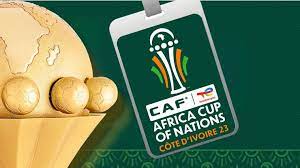Venturing into the realm of international football, the Africa Cup of Nations (AFCON) has evolved into the continent’s premier tournament, becoming a captivating spectacle that brings together top national teams. The roots of this football extravaganza trace back to the early 1950s, growing in tandem with the burgeoning landscape of African football.
Embarking on its journey in 1957 in Sudan, the inaugural AFCON featured a modest trio of teams – Egypt, Sudan, and Ethiopia. Egypt emerged victorious, clinching the championship by defeating Sudan in a thrilling final. This marked the inception of a tournament that would go on to shape the destiny of African football.
The period from 1957 to 1965 witnessed the tournament’s inception and early years. The idea of a continental competition for African national teams was first conceived in 1956, paving the way for the historic inaugural edition. The subsequent years saw the tournament expand, introducing group stages and knockout rounds in 1968. The 1972 edition hosted by Cameroon marked a significant milestone as it ventured beyond North Africa for the first time, with the Democratic Republic of Congo claiming the coveted title. Additionally, AFCON transitioned to a biennial format starting in 1976.
The emergence of football powerhouses characterized the era from 1982 to 1998, with teams like Cameroon, Egypt, and Nigeria dominating the scene. Cameroon secured back-to-back titles in 1984 and 1988, while Egypt tasted victory in 1986. The 1992 tournament in Senegal witnessed Ivory Coast clinching their maiden AFCON title, adding a new chapter to the competition’s rich history.
The years from 1996 to 2006 marked the inclusion of South Africa in the AFCON narrative, as the nation hosted the tournament in 1996, signaling its return to international football post-apartheid. The tournament expanded to 16 teams in 1996, leading to continued success for football powerhouses like Cameroon and Egypt.
The turn of the new millennium, spanning from 2008 to 2015, showcased AFCON’s adaptability as Angola hosted the tournament in 2010, bringing it back to southern Africa. The 2013 edition witnessed Nigeria claiming the championship, and AFCON shifted to odd-numbered years from 2013 to avoid clashing with the FIFA World Cup.
In recent years, AFCON has continued to captivate audiences, with Gabon hosting the tournament in 2017 and Cameroon initially slated for 2019. However, the latter faced delays, eventually moving the event to Egypt. The 2019 edition, featuring an expanded 24-team format, witnessed Algeria securing their second AFCON title in a thrilling competition.
Looking ahead to 2022 and beyond, the COVID-19 pandemic necessitated the postponement of the 2021 AFCON initially set for Cameroon. Nevertheless, AFCON remains a crucial platform for showcasing African football talent, fostering unity among nations, and contributing significantly to the global football landscape.
In essence, AFCON stands not just as a football tournament but as a testament to the unity, pride, and growth of African nations, creating an enduring legacy that continues to shape the narrative of football in the continent.





